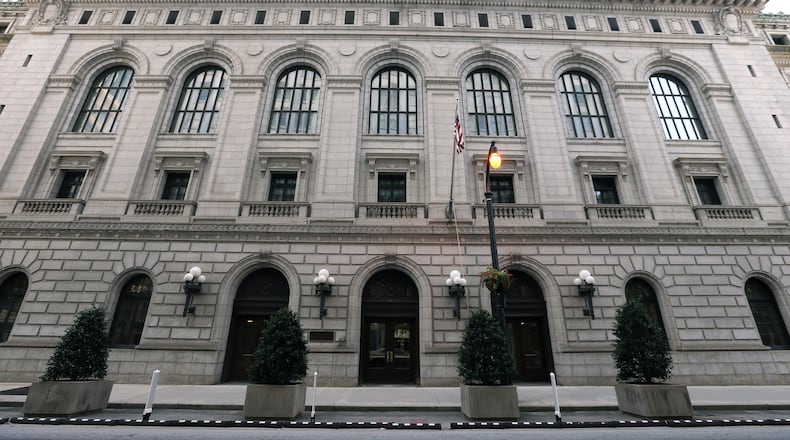The federal appeals court in Atlanta has once again decided that gays and lesbians are not protected under federal discrimination laws because of their sexual orientation.
In a decision issued Wednesday, the full 11th U.S. Circuit Court of Appeals ruled against former Clayton County employee Gerald Lynn Bostock, refusing to reconsider a decision that said Title VII of the Civil Rights Act of 1964 does not extend workplace protections to gays and lesbians. Bostock contends he was fired as a child welfare services coordinator because he is gay.
Bostock’s case already has the attention of the U.S. Supreme Court. It is now deciding whether to hear Bostock’s appeal and one from a conflicting decision by the federal appeals court in New York, which said gays and lesbians are protected under Title VII.
The issue is of monumental importance to the LGBT community, said Judge Robin Rosenbaum, who dissented to the 11th Circuit’s decision on Wednesday.
“I continue to firmly believe that Title VII prohibits discrimination against gay and lesbian individuals because they fail to conform to their employers’ views when it comes to whom they should love,” wrote Rosenbaum, an appointee of President Barack Obama.
Citing a 2011 study, Rosenbaum noted there are millions of Americans who identify as gay, lesbian or bisexual, and roughly 25 percent of them experience workplace discrimination because their sexual preferences do not match their employers’ expectations. “That’s a whole lot of people potentially affected by this issue,” she wrote.
Judge Jill Pryor joined Rosenbaum’s dissent.
Bostock’s case was in the unusual posture of being before the 11th Circuit and the U.S. Supreme Court at the same time. While the appeals court mulled a request for all 12 of its judges to reconsider a ruling against Bostock issued in May, Bostock’s lawyers were already asking the Supreme Court to accept the appeal.
Just recently, the high court said it wants to know more about the case.
After Bostock appealed, Clayton County’s attorney told the high court the county did not intend to respond. But on July 13, the court told the county to file a response.
“We hope the Supreme Court takes the case,” said Brian Sutherland, one of Bostock’s attorneys. “This is an issue of extraordinary importance, not only for Mr. Bostock but for all the gays and lesbians in this country who work to earn a living.”
Bostock began working for Clayton County in 2003 and received good performance evaluations, court records say. In January 2013, he joined a gay softball league and promoted it as a place for volunteer opportunities.
But Bostock said his participation in the league and his sexual orientation were openly criticized by people who had significant influence over the country’s decision-making. In April 2013, the county conducted an audit on the funds managed by Bostock, an audit Bostock contended was used as a pretext against him because he is gay.
Two months later, Bostock was fired. He later filed suit alleging discrimination on the basis of sexual orientation.
A year ago, Senior U.S. District Judge Orinda Evans in Atlanta dismissed Bostock's complaint. She largely relied on a ruling issued by the 11th Circuit in March 2017, when it said Title VII did not protect a security guard at Georgia Regional Hospital who claimed she was harassed and fired because she's a lesbian.
Since then, two other courts have ruled to the contrary.
In April 2017, the 7th U.S. Circuit Court of Appeals in Chicago became the first in the nation to declare that discrimination on the basis of sexual orientation is a form of sex discrimination. It ruled in favor of an Indiana teacher who said she was fired by Ivy Tech Community College after being seen kissing her girlfriend in the school parking lot. Notably, Ivy Tech declined to appeal to the Supreme Court.
In September, the 2nd U.S. Circuit Court of Appeals in New York ruled in favor of skydiving instructor Donald Zarda, who claimed he was fired from his job because he is gay. The 2nd Circuit rejected a position taken by the Justice Department, which under the Trump Administration had intervened and argued Title VII did not protect Zarda’s discrimination claims.
Zarda’s former company, Altitude Express, is appealing to the Supreme Court. This presents the high court with conflicting opinions from the 2nd and 11th circuits, which can be the basis for the court deciding to hear an appeal.
About the Author
The Latest
Featured





